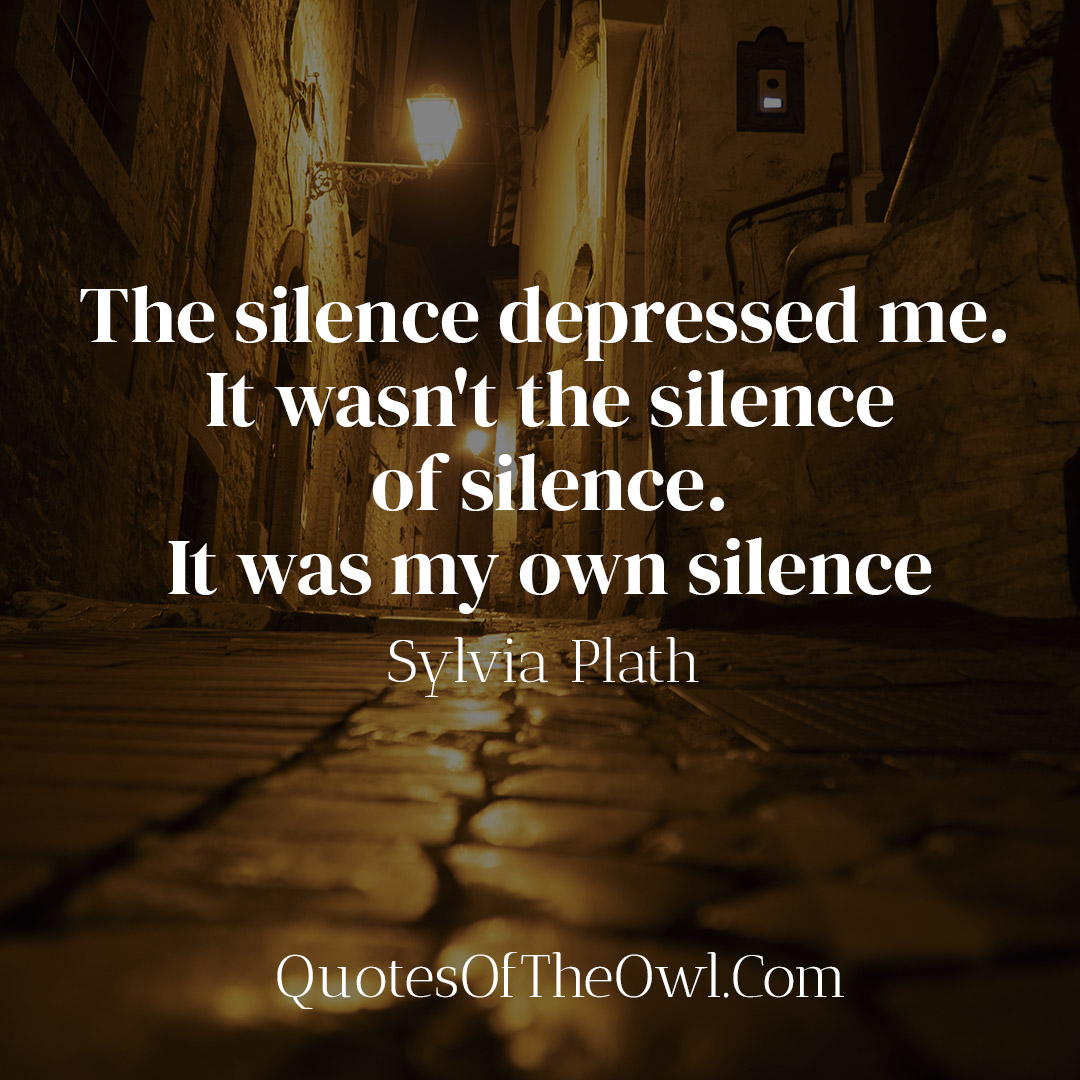Discover the True Meaning Behind Sylvia Plath’s Quote “The silence depressed me. It wasn’t the silence of silence. It was my own silence.”
Silence can be deafening, especially when it’s your own silence. Sylvia Plath’s quote, “The silence depressed me. It wasn’t the silence of silence. It was my own silence,” encapsulates the struggles that many individuals face in their battle with mental health. This article will delve into the true meaning behind this quote, exploring the themes of self-silencing and the impact it has on mental health.
Here’s the full version of the quote: “The silence depressed me. It wasn’t the silence of silence. It was my own silence. I knew perfectly well the cars were making a noise, and the people in them and behind the lit windows of the buildings were making a noise, and the river was making a noise, but I couldn’t hear a thing. The city hung in my window, flat as a poster, glittering and blinking, but it might just as well not have been there at all, for all the good it did me.”
Analysis of the Quote
Plath’s quote, “The silence depressed me. It wasn’t the silence of silence. It was my own silence,” speaks to her experience of feeling isolated and disconnected from the world around her. The quote is taken from her novel “The Bell Jar,” in which the main character, Esther Greenwood, struggles with mental illness and feels trapped in her own mind. The passage is a reflection of Esther’s feelings of numbness and disconnection from the world, which are brought on by her depression.
The context of the quote is crucial in understanding its meaning. Plath describes the city outside her window as “flat as a poster, glittering and blinking,” but despite the noise and activity of the world around her, she feels completely disconnected from it. The quote is a powerful metaphor for the experience of depression, where even the most mundane activities can feel overwhelming and isolating.
The concept of silence
Silence can be defined as the absence of sound or noise. However, in Plath’s quote, she emphasizes that the silence she experienced was not the absence of sound, but rather her own internal silence. This type of silence is often characterized by feelings of isolation, loneliness, and disconnection from the world around us.
The different types of silence
There are many different types of silence, including physical silence, emotional silence, and mental silence. Physical silence refers to the absence of external noise, while emotional silence refers to the inability to express one’s emotions or feelings. Mental silence is characterized by a lack of clarity or focus in one’s thoughts and can lead to feelings of confusion and anxiety.
The impact of silence on mental health
Silence can have a profound impact on one’s mental health. In some cases, it can be a source of comfort and solitude, allowing individuals to reflect and process their thoughts and emotions. However, prolonged silence can also lead to feelings of loneliness, depression, and anxiety, especially if it is self-imposed or involuntary.
Conclusion
In conclusion, Sylvia Plath’s quote about the silence that depressed her speaks to the profound impact of emotional isolation on mental health. It’s a reminder that we all need connection and community in order to thrive, and that the absence of those things can be incredibly damaging. If you’re struggling with feelings of isolation or disconnection, know that you’re not alone. Reach out for help and support, and remember that there is always hope.

